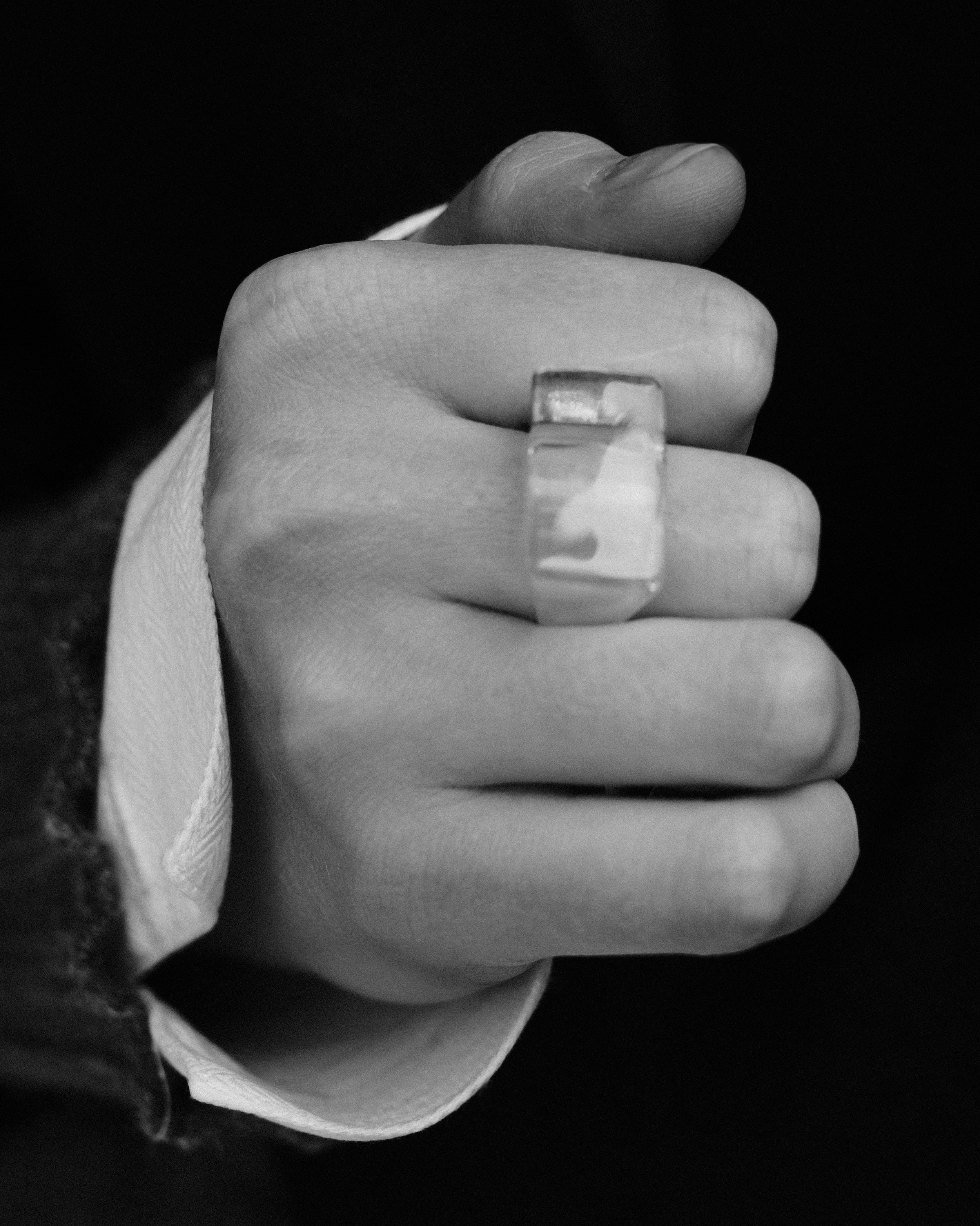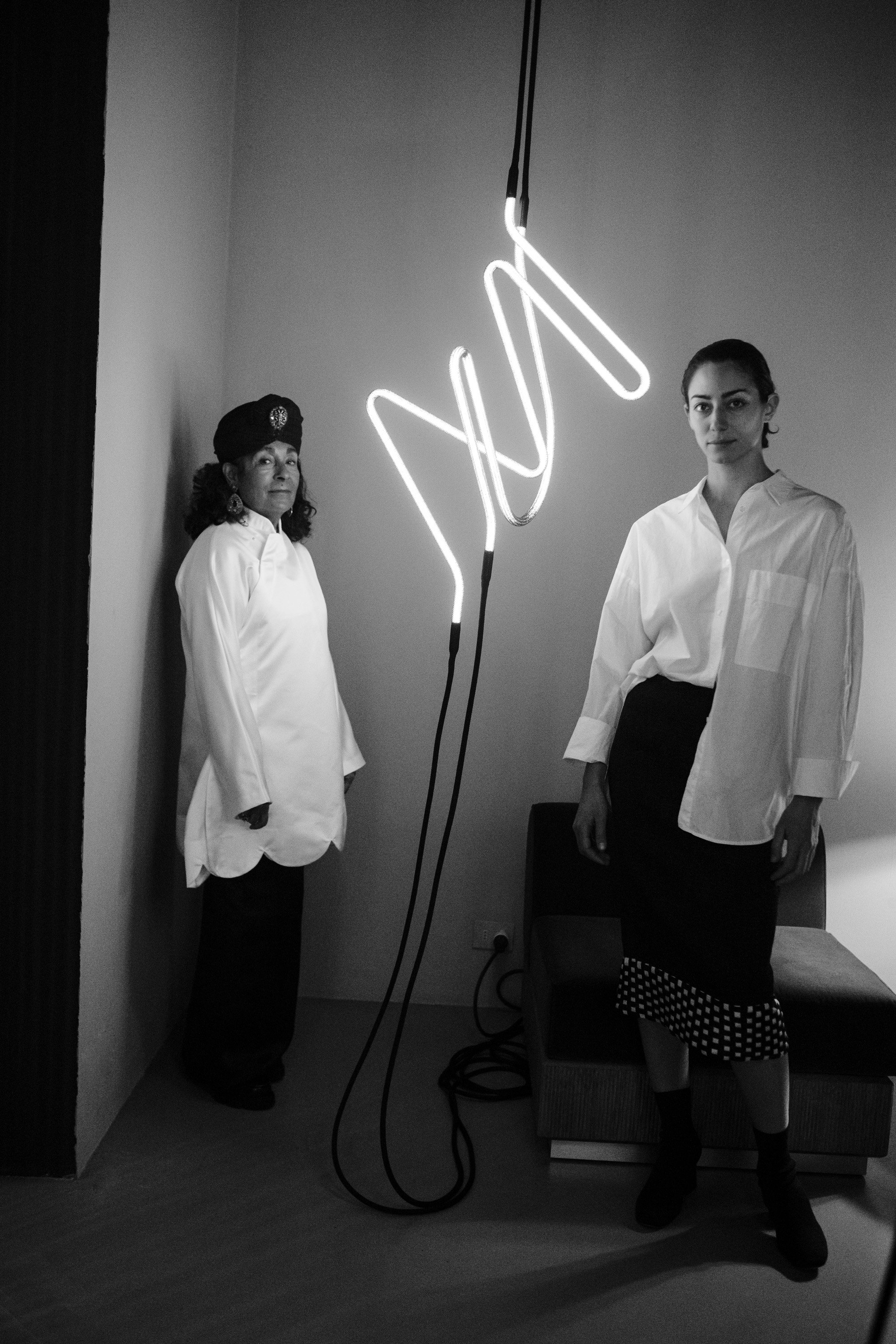Beyond Empowerment
Photography by Marit Simons. Courtesy of HURS.
Beyond Empowerment
An op-ed by Veuve Clicquot CMO Carole Bildé
By Carole Bildé
Women have ideas. Amazing ideas that can change the world.
Women want to become entrepreneurs. In some countries, women working for themselves, or starting their own businesses, are in the majority: 61 percent of working women in South Africa are entrepreneurs, 58 per cent in Ivory Coast, 62 per cent in Brazil. In Nigeria, the figure is a staggering 89 per cent, five per cent more than for men.
It’s no secret that life as an entrepreneur can be tough, a rollercoaster of highs and lows. And as everyone knows, the bar for women is high. No complaints, this is simply a matter of fact. In France, 66 percent of women entrepreneurs believe they encounter more obstacles than their male counterparts. In Japan, the figure is 67 per cent, and 64 per cent in South Africa. In widely differing economic contexts worldwide, women feel compelled to work harder, do better, than men.
Structural barriers remain, of course. Women report unequal access to funding – not so much jumping through hoops, more a veritable assault course to secure the capital they need. And then there’s the issue of support at home. Statistics worldwide continue to reflect the widely-held belief that women entrepreneurs will suffer a negative work/life balance, with an additional burden of guilt when family life is affected. (Spain tops the league of countries where this view is most strongly held). There are persistent psychological barriers, too. Impostor syndrome, low self-confidence and self-esteem are widely reported, notably in Japan, where a majority of businesswomen attribute their success to luck.
This brings us to “empowerment,” a much-used – indeed overused – word, but one that’s centrally important. “Empowerment” is the process by which women gain strength and confidence. If we can reinforce and accelerate this process, let’s do it.
I strongly believe in role models. The more powerful and successful women we see, of all ages, from all parts of the world, the better equipped we are to overcome our fears and doubts. Take every opportunity you can, to enable a woman in your circle to shine.
And yet, the very concept of “empowerment” is loaded with implications that reflect societal perspectives that can be hard to shake off. It shines a light into a deep faultline that continues to run through society. It implies that women need help to rise. An additional boost, a power surge… Even now, women in business are often perceived to be in need of nurturing and assistance to achieve full autonomy, like teenagers preparing to leave the nest (in France, for example, “empowerment” translates as autonomization). Authority and power are gifts to receive. The traditional dictionary definition makes this clearer still: Empowerment - the act of giving somebody the power or authority to do something.
Believe me, the women entrepreneurs I’ve met did not need to be boosted, motivated, emancipated. All they needed was to be trusted. Not challenged and tested. In Nigeria, a wonderful woman entrepreneur told me her motto, which I love: “Don’t judge me by the challenges I’ve overcome. Teach me: I can learn.”
We need to promote a culture of trust, not a culture of “empowerment.” A culture of trust is a fairer response to the needs of women in general, and of women entrepreneurs in particular.
Courtesy of HURS.
Photography by Marit Simons. Courtesy of HURS.
The perception and reality of women in business
The balance remains fragile, and the gains we perceive are often non-existent in reality. In a world on the move, nothing much has changed for women entrepreneurs.
Since 2018, our Veuve Clicquot “Bold International Barometer” survey of women’s entrepreneurship has been conducted in 25 countries. 50,000 women have responded, producing tangible data that measures shifts in our perception of women entrepreneurs.
Paradoxically, the upheavals wrought by the Covid-19 pandemic brought a measure of hope. Women’s entrepreneurship boomed, with a 10-point increase in France. New ideas blossomed, and entrepreneurship emerged as a key factor in our recovery from the crisis. It seemed, too, that the pandemic may well have weakened or removed some of the barriers typically faced by women entrepreneurs.
But the illusion was short-lived. Old habits have resurfaced, and the same old stories are heard. Today, women’s entrepreneurship is losing ground: in the UK, only 16 percent of working women are entrepreneurs, a drop of 7 per cent in just 2 years. The same goes for women expressing an interest in starting their own business: women accounted for 47 per cent of aspiring entrepreneurs in the UK in 2021, but only 40 per cent in 2023. Economic uncertainty has reinforced that all-too-familiar loss of resilience and self-confidence.
Behind this concept of “empowerment” as an absolute necessity lies another, remarkably persistent belief, grounded in a collective mindset, and supremely difficult to challenge and overcome: the idea that in order to succeed in business, a woman must act like a man. Indeed, women need to demonstrate greater expertise and authority than men if they are to be taken seriously. This belief is held by a majority of women in business around the world, irrespective of their cultural or economic circumstances. The Barometer from Veuve Clicquot shows that it’s held most strongly in Hong Kong and Mexico.
Finally, our Veuve Clicquot Bold Woman Award winners remind us that their unstoppable determination remains their most persuasive weapon. Don’t spend too much time focusing on trying to act like a man. Instead, we need to focus on our aims and objectives, our self-belief, our ideas and projects. We need to communicate these with determination, conviction and ambition. And we need to banish the words “small” and “little” from our vocabulary. Women have ideas and projects that need investment. What we don’t need is to qualify our initiatives as “small-scale” or (by implication) insignificant.
So, what tools do female entrepreneurs need to succeed?
Visibility. Visibility. And visibility. It’s the key that unlocks many doors. The media, investors, banks, and potential clients will support us if they can see us. Ultimately, visibility brings more opportunities to grow your business and your self-confidence. Visibility is the cornerstone of a virtuous arc. Start by documenting your story, your success. Don’t expect others to do it for you. Everything starts with you.
“Behind this concept of “EMPOWERMENT” as an absolute necessity lies another, remarkably persistent belief, grounded in a collective mindset, and supremely difficult to challenge and overcome: the idea that in order to succeed in business, a woman must act like a man.”
The media’s impact on how we view ourselves
Empowerment is also the power to act, to make a difference. The question of visibility is critical, and the media has a central role to play.
Start with the basics: showcase as many examples of women’s entrepreneurship as you can. And then some more. Give many different examples – at Veuve Clicquot, we have developed the Bold Open Database, the first global open database for women entrepreneurs. A multitude of women entrepreneurs you haven’t met yet, waiting to welcome you in, passionate about sharing their ideas and enthusiasm in papers as yet unwritten. All you need to do is use the database. It’s free.
Talk about success and emulation. Show your enthusiasm for women’s entrepreneurship, your unique perspective. Bring excitement and joy to the conversation. Celebrate women’s achievements in business – and celebrate them alongside those of men, from time to time. This reinforces a vital message: that success in business is not gendered, and that women’s success has the same perceived value as that of men. As a woman entrepreneur put it to me once: achievements are stronger than fear. Achievements are the best rewards.
Strive to rebalance the picture: women entrepreneurs are disproportionately represented in personal services, healthcare and beauty, so be sure to showcase more businesswomen in tech. More women in business and tech means not only greater equality, but more women driving the innovations of tomorrow. More women shaping the world we will all inhabit, in the future.
At the end of the day, the role of the media is to promote and showcase women’s self-belief. Yes, it’s possible. We need to show our girls that all doors stand open. For men and women alike.
More than “empowerment”, I want to believe that “Yes, it’s possible.” As simple as that.






